
Exploring the Natural Wonders of Layou River
The Layou River is the longest and most scenic river in Dominica, weaving its way through lush rainforests and serene landscapes. Known for its pristine waters and vibrant ecosystems, the river offers a splendid escape into nature's tranquility. Whether you are an adventure seeker or a peace lover, the Layou River is sure to captivate your senses. The river is a popular spot for water activities like kayaking, tubing, and swimming. Its gentle currents and clear waters make it perfect for a leisurely float down the river. Surrounding the river, you will find a rich array of flora and fauna, from tropical birds to exotic plants. The Layou River is a haven for nature enthusiasts and photographers alike. Adjacent to the river, you will find the quaint village of Layou, where you can experience local culture and hospitality. Here, you can enjoy traditional Dominican cuisine, engage with friendly locals, and explore the charming village life. The Layou River and its surrounding areas offer a perfect blend of adventure and relaxation, making it an ideal destination for tourists seeking an authentic Caribbean experience.
Local tips in Layou River
- Visit during the dry season (December to May) for the best water activities.
- Bring water shoes for a comfortable experience while navigating the river.
- Don't forget your camera; the river and surrounding areas are incredibly photogenic.
- Engage with local guides for an enriched experience and to learn about the river's ecosystem.
- Try the local cuisine in Layou village for an authentic taste of Dominica.
Exploring the Natural Wonders of Layou River
The Layou River is the longest and most scenic river in Dominica, weaving its way through lush rainforests and serene landscapes. Known for its pristine waters and vibrant ecosystems, the river offers a splendid escape into nature's tranquility. Whether you are an adventure seeker or a peace lover, the Layou River is sure to captivate your senses. The river is a popular spot for water activities like kayaking, tubing, and swimming. Its gentle currents and clear waters make it perfect for a leisurely float down the river. Surrounding the river, you will find a rich array of flora and fauna, from tropical birds to exotic plants. The Layou River is a haven for nature enthusiasts and photographers alike. Adjacent to the river, you will find the quaint village of Layou, where you can experience local culture and hospitality. Here, you can enjoy traditional Dominican cuisine, engage with friendly locals, and explore the charming village life. The Layou River and its surrounding areas offer a perfect blend of adventure and relaxation, making it an ideal destination for tourists seeking an authentic Caribbean experience.
When is the best time to go to Layou River?
Iconic landmarks you can’t miss
Emerald Pool
Discover Dominica's iconic Emerald Pool: a serene waterfall and emerald-green pool nestled in the heart of Morne Trois Pitons National Park.
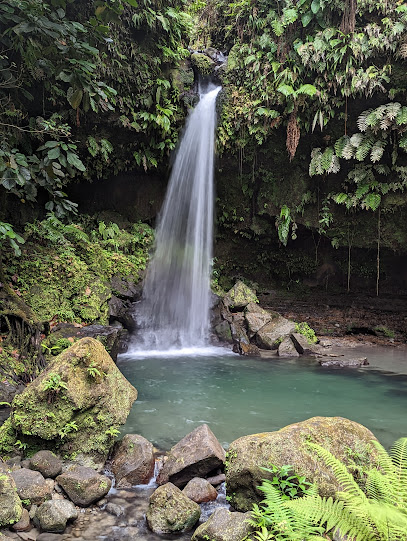
Titou Gorge
Swim through a volcanic gorge to a hidden waterfall in Dominica's stunning Morne Trois Pitons National Park.
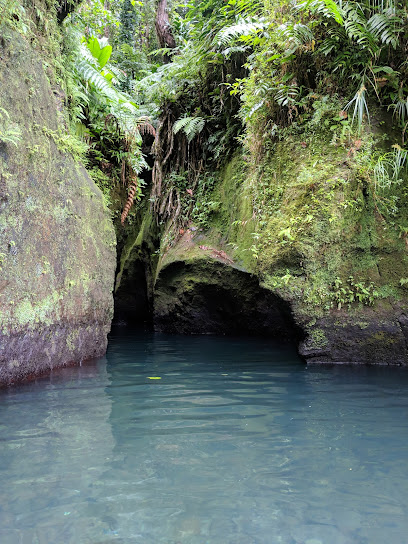
Morne Bruce Viewpoint
Discover panoramic views and colonial history atop Morne Bruce in Roseau, Dominica, offering a unique blend of natural beauty and historical significance.
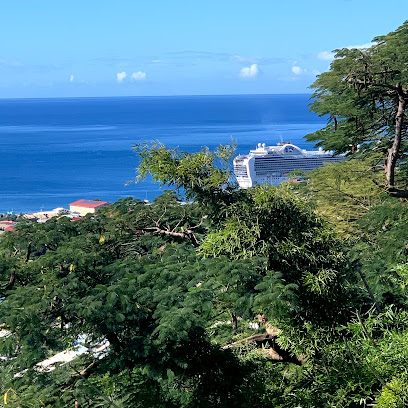
Spanny Falls
Discover Dominica's hidden gem: Spanny Falls, a tranquil rainforest escape with refreshing pools and cascading waterfalls.
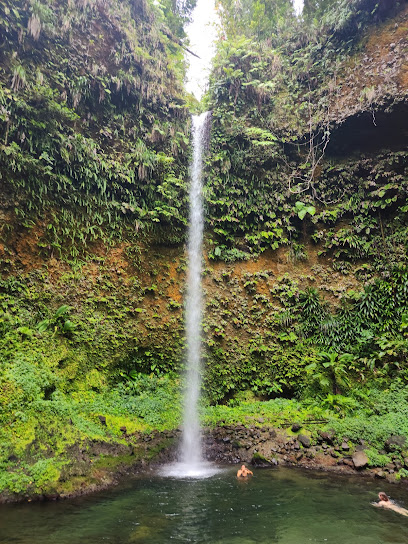
Unmissable attractions to see
Trailhead start for Boiling Lake
Discover the stunning landscapes and volcanic wonders at the Boiling Lake Trailhead in Laudat, Dominica, a must-visit for adventurous travelers.
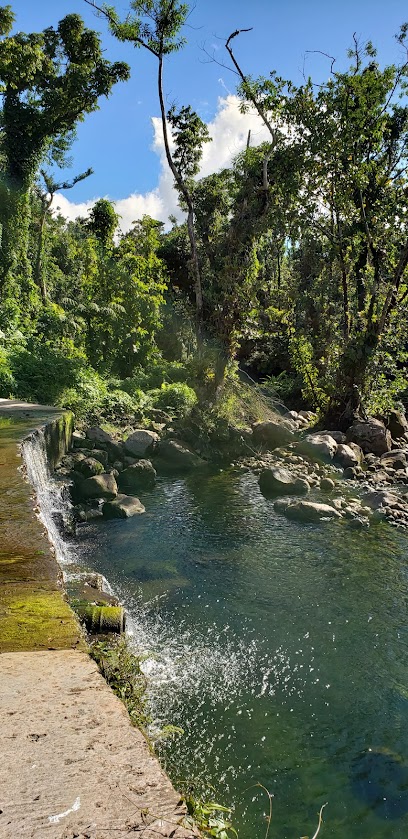
Turtle Beach
Discover the tranquil beauty of Turtle Beach in Rosalie, Dominica, a perfect spot for relaxation, snorkeling, and exploring the untouched nature of the Caribbean.
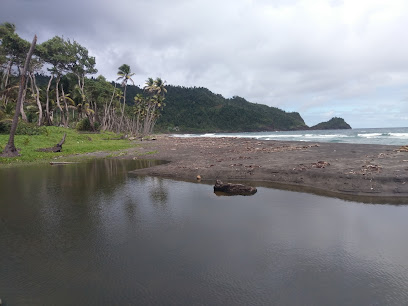
Nature Isle Explorers Tours
Discover the breathtaking landscapes and rich biodiversity of Dominica with Nature Isle Explorers Tours, your gateway to unforgettable adventures.
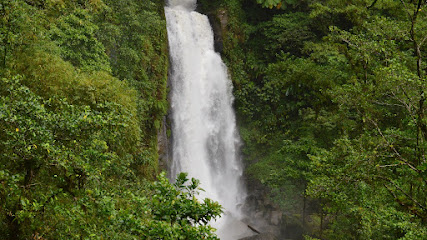
Syndicate Nature Trail
Discover the breathtaking beauty and diverse wildlife of Syndicate Nature Trail, a hiking paradise in the heart of Dominica's stunning landscapes.
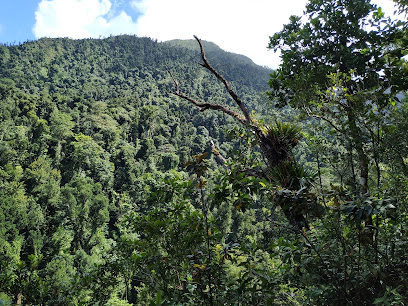
Horseback Ridge
Discover the breathtaking landscapes and serene hiking trails of Horseback Ridge, a hidden gem in Bataka, Dominica's natural beauty.
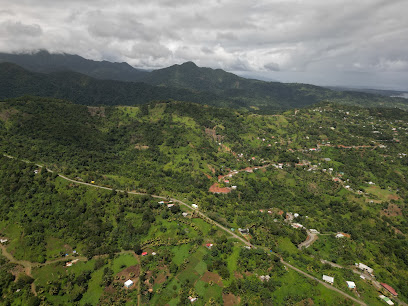
Essential places to dine
The Great Old House
Experience authentic Dominican cuisine at The Great Old House in Roseau - where local flavors meet warm hospitality.
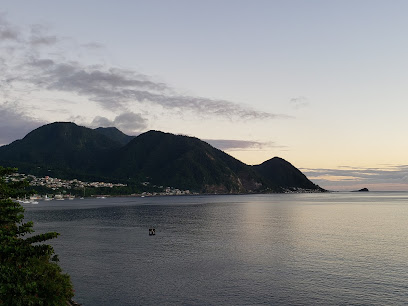
Islet View Restaurant & Bar
Experience exquisite dining at Islet View Restaurant & Bar, where breathtaking views meet delicious cuisine in Castle Bruce.
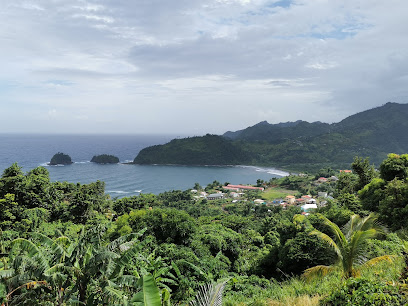
Unique seaview restaurant
Experience exquisite dining at Unique Seaview Restaurant in Calibishie - where culinary delights meet breathtaking ocean views.
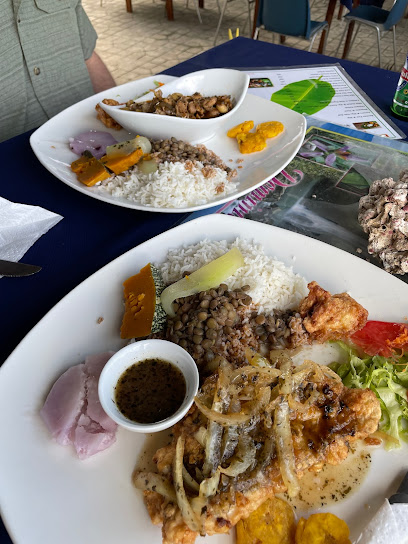
Sardonyx Restaurant & Bar
Discover culinary excellence at Sardonyx Restaurant & Bar in Mero - where Caribbean flavors meet stunning coastal views.
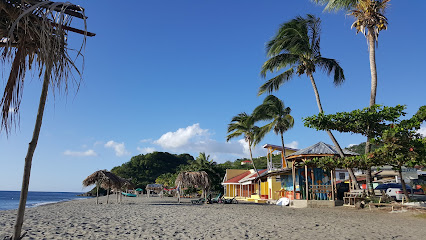
Nedi's Riverside Bar
Discover Nedi's Riverside Bar: A charming restaurant offering authentic Caribbean cuisine and breathtaking views along Layou Road.
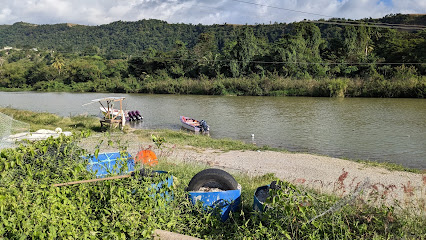
Riverstone bar & grill
Discover delicious barbecue delights at Riverstone Bar & Grill in Dominica - where flavor meets warmth in every bite.
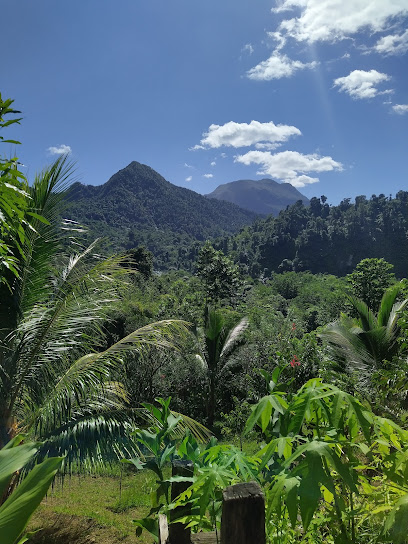
KoolSpot Restaurant and Bar
Experience authentic Caribbean flavors at KoolSpot Restaurant and Bar in Roseau - where delicious food meets vibrant island culture.

Markets, malls and hidden boutiques
Home'n Tools
Explore Home'n Tools in Mahaut, your ultimate destination for DIY supplies and home improvement inspiration in the heart of Dominica.
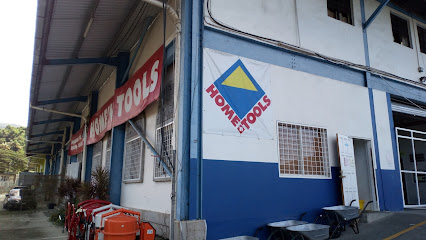
Duty Free Emporium
Discover luxury shopping at the Duty Free Emporium in Roseau - your ultimate destination for premium products at unbeatable prices.
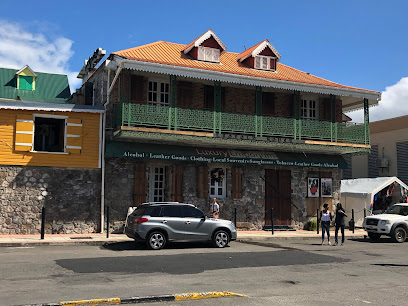
Grocery Shop
Discover local flavors and essentials in St. Joseph's charming grocery shop, a perfect stop for tourists seeking a taste of the Dominican Republic.
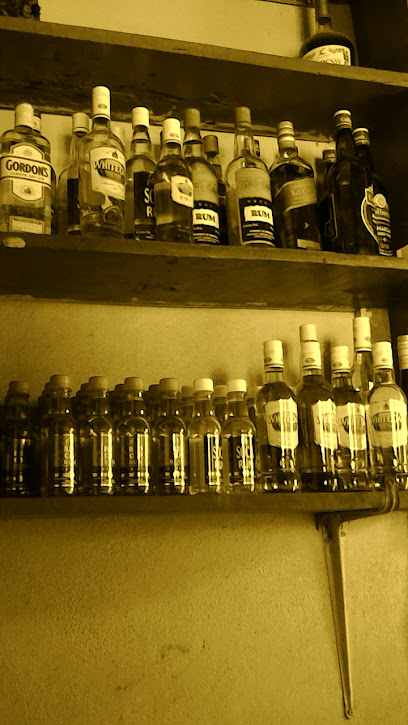
Sunny Days
Experience the local flavors and welcoming atmosphere at Sunny Days Grocery Store in Mahaut, your gateway to authentic Dominican culture.
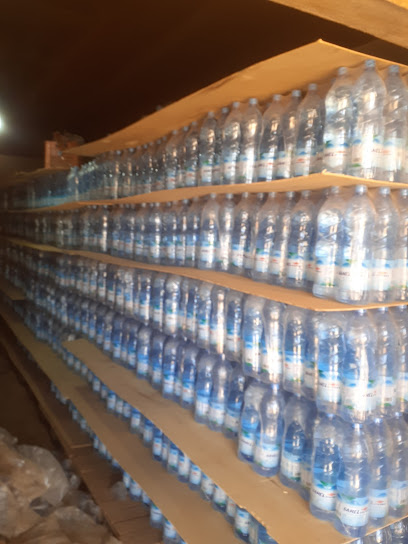
Majic Mart
Explore the vibrant flavors of Mahaut at Majic Mart, your premier grocery store for local and international delights.

Un!k Shopping Mart
Un!k Shopping Mart in St. Joseph offers a vibrant shopping experience with local and international products, perfect for tourists exploring Dominica.

Seedlings plus
Explore Seedlings Plus in Mahaut for unique local crafts, traditional snacks, and authentic Dominican souvenirs that celebrate the island's rich culture.
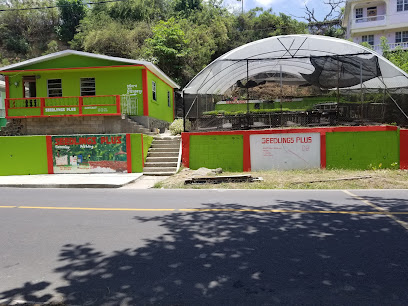
Levis Store/Limer's Jeans Inc
Explore the latest fashion trends at Levis Store/Limer's Jeans Inc in Roseau for a unique shopping experience.
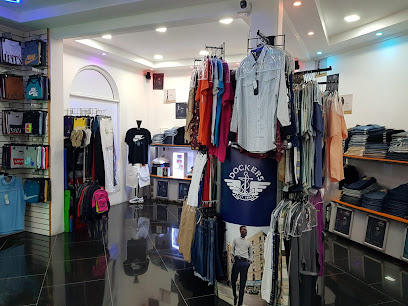
Mino's Snackette & Boutique
Experience local flavors and warm hospitality at Mino's Snackette & Boutique in Wotten Waven, a charming grocery store for every traveler.
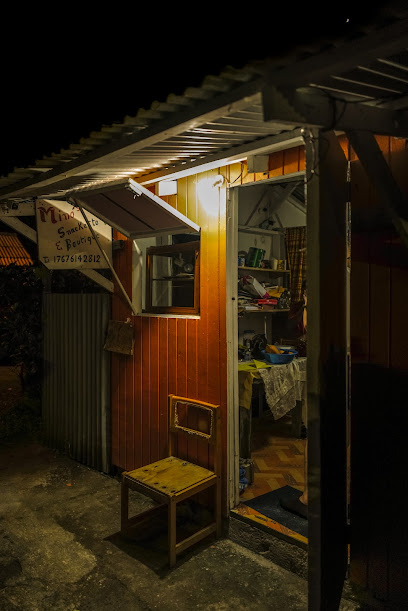
WC Farm Supplies Ltd
Explore the vibrant local culture at WC Farm Supplies Ltd, your go-to farm shop in Grand Savannah for fresh produce and unique artisanal goods.

Jhalyn's collection
Explore the vibrant fashion landscape of Dominica at Jhalyn's Collection, a unique clothing store in the heart of Roseau offering local styles.

Shopper' Den
Discover the vibrant flavors of Dominica at Shopper's Den, your go-to grocery store for fresh produce and local delicacies in St Joseph.

Myrtle’s Variety
Explore Myrtle's Variety in Roseau for local crafts, fresh produce, and a taste of Dominican culture in a charming shopping experience.

Esmeralda’s_fragrance16
Discover Esmeralda's Fragrance in Este, where shopping meets culture in a vibrant Dominican atmosphere, perfect for tourists seeking unique experiences.

By Merium Shopping Enterprise
Explore the vibrant local produce and unique flavors of Dominica at By Merium Shopping Enterprise, your gateway to Caribbean culinary delights.

Essential bars & hidden hideouts
River Rock Cafe and Bar
Discover the vibrant River Rock Cafe and Bar in Trafalgar, offering a delightful atmosphere and a wide selection of drinks in a tropical paradise.
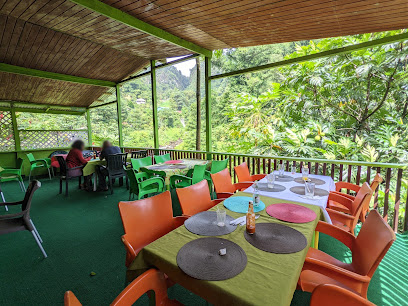
Shyan's Shop and Bar
Discover Shyan's Shop and Bar in Pont Cassé for a taste of local cuisine and a vibrant atmosphere that captures the spirit of the Caribbean.
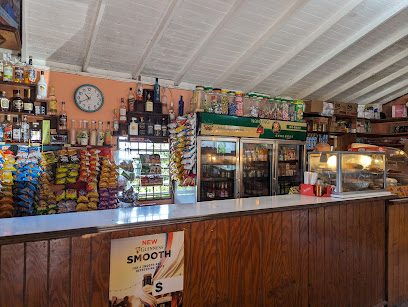
Kool Breeze Bar
Discover the vibrant Kool Breeze Bar in Marigot, where friendly service and refreshing drinks create the perfect tropical escape.
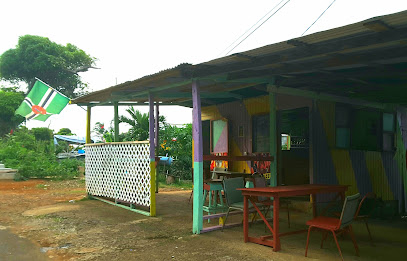
La croix bar and grill
Discover the vibrant flavors and refreshing drinks at La Croix Bar and Grill, the perfect spot to unwind in St. Joseph.
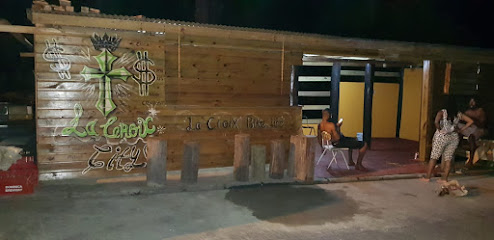
Letz Have One Bar & Grill
Letz Have One Bar & Grill: Enjoy delicious Caribbean cuisine and vibrant nightlife in the heart of Dominica.
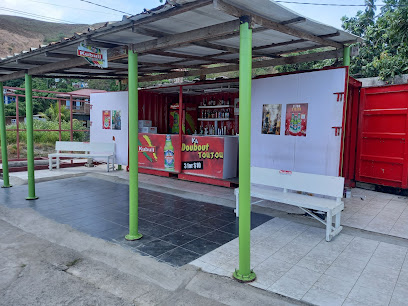
Cecelia Bar And Grill
Experience the vibrant flavors of the Caribbean at Cecelia Bar And Grill, where local cuisine meets lively ambiance in the heart of Baroui.
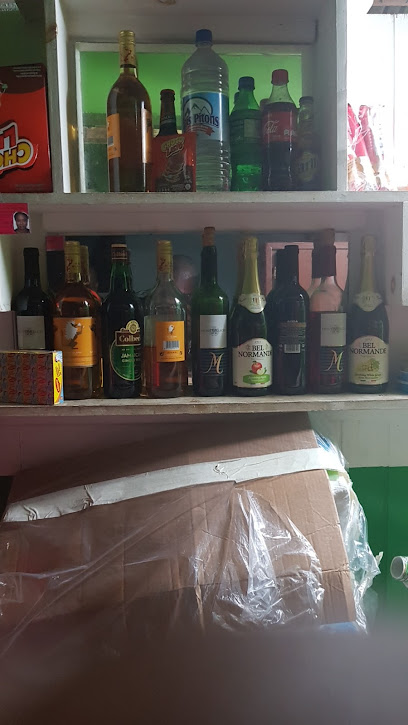
Bar La Plage
Discover the laid-back charm of Bar La Plage on Mero Beach, where refreshing drinks meet stunning ocean views for the perfect tropical escape.
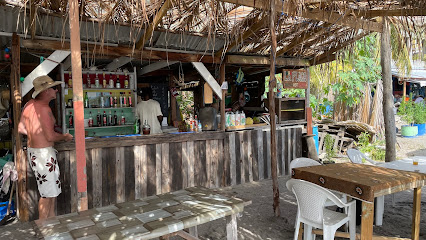
Tipsy Shots
Experience vibrant nightlife at Tipsy Shots in Mahaut, where creative cocktails and lively ambiance create unforgettable memories.

Nedi's Riverside Bar
Discover the charm of Nedi's Riverside Bar, where local flavors meet stunning views in the heart of Dominica.
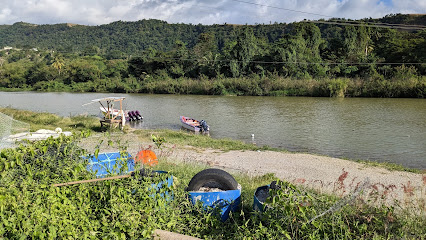
Riverstone bar & grill
Discover authentic Caribbean barbecue flavors at Riverstone Bar & Grill, where delicious grilled dishes meet a warm and inviting atmosphere.
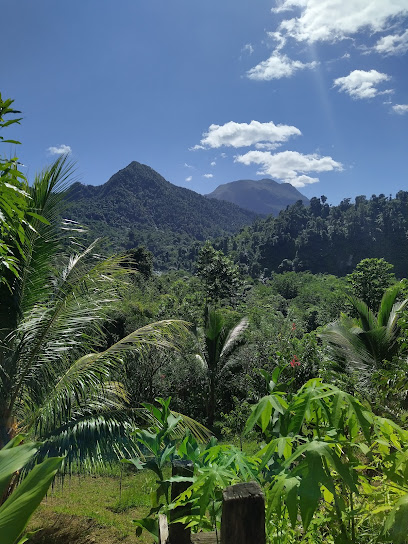
Drea's Bar
Experience the vibrant nightlife at Drea's Bar, a top bar destination in Brandy Square that captures the essence of local culture and flavor.

Spanny's Shop-N-Waterfall
Discover Spanny's Shop-N-Waterfall, a serene bar in Marigot offering refreshing drinks and stunning waterfall views, perfect for relaxation and enjoyment.
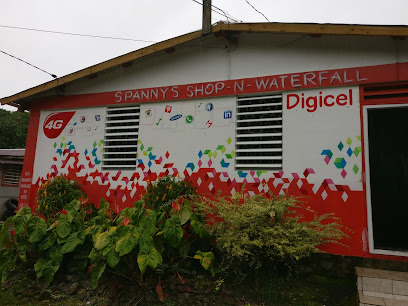
Bar Tough
Discover Bar Tough in Mero: A lively bar with refreshing drinks and a welcoming atmosphere, perfect for soaking in Caribbean vibes.

Brio's Chillspot
Experience the vibrant atmosphere and tropical flavors at Brio's Chillspot, the heart of Roseau's nightlife.

Christoe's yard bar &Restaurant
Experience the vibrant flavors and welcoming charm of Christoe's Yard Bar & Restaurant in Bath Estate, Dominica.
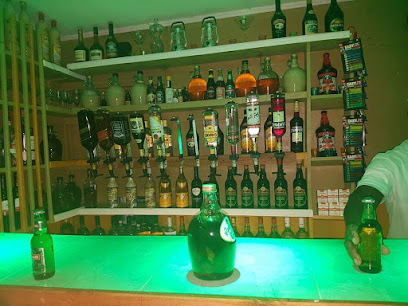
Local Phrases about Layou River
-
- HelloBonjou
[bon-joo] - GoodbyeOrevwa
[oh-rev-wah] - YesWi
[wee] - NoNon
[non] - Please/You're welcomeTanpri
[tahn-pree] - Thank youMèsi
[may-see] - Excuse me/SorryEskize mwen
[es-kee-zay mwen] - How are you?Kijan ou ye?
[kee-jan oo yay] - Fine. And you?Byen. E ou menm?
[byen. ay oo mehn] - Do you speak English?Eske ou pale angle?
[es-kay oo pah-lay ahn-glay] - I don't understandMwen pa konprann
[mwen pah kon-prahn]
- HelloBonjou
-
- I'd like to see the menu, pleaseMwen ta renmen gade meni a, tanpri
[mwen tah rahn-mehn gahd may-nee ah, tahn-pree] - I don't eat meatMwen pa manje vyann
[mwen pah mahn-jay vyan] - Cheers!Santé!
[sahn-tay] - I would like to pay, pleaseMwen ta renmen peye, tanpri
[mwen tah rahn-mehn pay-yay, tahn-pree]
- I'd like to see the menu, pleaseMwen ta renmen gade meni a, tanpri
-
- Help!Ed!
[ed] - Go away!Ale wè!
[ah-lay way] - Call the Police!Rele Polis la!
[reh-lay poh-lees lah] - Call a doctor!Rele yon doktè!
[reh-lay yohn dohk-tay] - I'm lostMwen pèdi wout
[mwen pay-dee woot] - I'm illMwen malad
[mwen mah-lahd]
- Help!Ed!
-
- I'd like to buy...Mwen ta renmen achte...
[mwen tah rahn-mehn ach-tay] - I'm just lookingMwen jis gade
[mwen zhees gahd] - How much is it?Konbyen li ye?
[kohn-byen lee yay] - That's too expensiveSa twò chè
[sah twah sheh] - Can you lower the price?Eske ou ka ba pri a?
[es-kay oo kah bah pree ah]
- I'd like to buy...Mwen ta renmen achte...
-
- What time is it?Kisa lè li ye?
[kee-sah lay lee yay] - It's one o'clockLi senk zè
[lee sank zay] - Half past (10)Demi (10)
[deh-mee (dix)] - MorningMaten
[mah-ten] - AfternoonApremidi
[ah-pray-mee-dee] - EveningAswè a
[ah-sway ah] - YesterdayYè
[yay] - TodayJodi a
[zho-dee ah] - TomorrowDemen
[deh-men] - 11
[en] - 22
[de] - 33
[twa] - 44
[kat] - 55
[sank] - 66
[sis] - 77
[sèt] - 88
[uit] - 99
[nèf] - 1010
[dis]
- What time is it?Kisa lè li ye?
-
- Where's a/the...?Ki kote yon/l... ye?
[kee ko-te yohn/l... yay] - What's the address?Kisa adrès la ye?
[kee-sah ah-dres lah yay] - Can you show me (on the map)?Eske ou ka montre mwen (sou kat la)?
[es-kay oo kah mohn-tray mwen (soo kaht lah)] - When's the next (bus)?Kilè pwochen (bis) la ye?
[kee-lay pwosh-ay (bees) lah yay] - A ticket (to ....)Yon tikè (pou ....)
[yohn tee-kay (poo ....)]
- Where's a/the...?Ki kote yon/l... ye?
History of Layou River
-
Long before European explorers set foot on Dominica, the lush and fertile Layou River valley was home to the Kalinago people. They lived harmoniously with nature, relying on the river for transportation, fishing, and agriculture. The Kalinago constructed sophisticated canoes called 'karbet,' navigating the river to trade goods and communicate with other settlements along the island.
-
In 1493, Christopher Columbus sighted Dominica on his second voyage to the New World. While he did not land on the island, his arrival marked the beginning of European interest in Dominica. The Layou River, with its strategic location and resources, soon became a focal point for European explorers and settlers.
-
During the 17th and 18th centuries, Dominica was a contested territory between the French and the British. The Layou River area witnessed numerous skirmishes as both colonial powers sought control over the island. The fertile lands around the river were ideal for plantations, making it a valuable asset. Fort Shirley, located nearby in Cabrits National Park, serves as a reminder of these turbulent times.
-
Throughout the colonial period, escaped enslaved Africans, known as Maroons, sought refuge in the rugged interior of Dominica, including the Layou River valley. These resilient communities waged guerrilla warfare against the colonial powers, using their intimate knowledge of the terrain to their advantage. The Layou River provided a lifeline, enabling the Maroons to sustain their resistance efforts.
-
In the 18th and 19th centuries, the fertile lands around the Layou River were transformed into sprawling sugar plantations. Enslaved Africans were forced to work under brutal conditions to cultivate and process sugar cane. The river played a crucial role in the transportation of goods and produce, with small boats navigating its waters to reach the coast.
-
Following the abolition of slavery in 1834, the Layou River region underwent significant changes. Formerly enslaved individuals established their own communities and small farms along the river, cultivating crops such as cocoa, coffee, and bananas. The river continued to be a vital resource, supporting agriculture and providing a means of transportation.
-
In the 20th century, the Layou River area saw further development and modernization. Infrastructure improvements, such as the construction of bridges and roads, enhanced connectivity and accessibility. The river also became a popular destination for eco-tourism, attracting visitors with its stunning natural beauty, lush rainforests, and diverse wildlife.
-
The Layou River holds deep cultural significance for the people of Dominica. It is a site of traditional rituals, celebrations, and festivals. One such event is the annual 'Titou Gorge Bash,' where locals and visitors gather to enjoy music, dance, and festivities along the riverbanks. The river remains a symbol of community and resilience, reflecting the island's rich cultural heritage.
Layou River Essentials
-
Layou River is located on the west coast of Dominica. The nearest international airport is Douglas-Charles Airport, approximately 45 kilometers away. From the airport, you can take a taxi or a pre-arranged shuttle to Layou. The journey typically takes about an hour by road. Alternatively, you can rent a car at the airport for more flexibility in your travels.
-
Once in Layou, getting around is relatively straightforward. Local buses and minibuses are available and are a cost-effective way to travel. Taxis are also readily available and can be hailed or booked in advance. If you prefer to explore at your own pace, renting a car is a convenient option. Be aware that driving is on the left side of the road in Dominica.
-
The official currency in Dominica is the Eastern Caribbean Dollar (XCD). Credit cards are accepted in most hotels, restaurants, and shops, but it's advisable to carry some cash, especially when visiting smaller establishments or rural areas. ATMs are available in major towns, but it's wise to withdraw sufficient cash before heading to more remote areas.
-
Layou River and its surroundings are generally safe for tourists. However, it is advisable to take standard precautions such as avoiding walking alone at night and keeping an eye on your belongings in crowded places. While there are no specific high-crime areas targeting tourists, staying vigilant and aware of your surroundings is always best practice.
-
In case of emergency, dial 999 for immediate assistance. Local police stations and medical facilities are available in nearby towns. It is recommended to have travel insurance that covers medical emergencies. Pharmacies are available in Layou where you can purchase over-the-counter medications for minor health issues.
-
Fashion: Do dress comfortably and appropriately for outdoor activities. Avoid wearing overly revealing clothing. Religion: Do be respectful of local customs and traditions. Public Transport: Do be courteous and respectful to fellow passengers. Don't eat or drink on public transport. Greetings: Do greet people with a friendly 'hello' or a handshake. Eating & Drinking: Do try local dishes and accept food offerings graciously. Don't refuse hospitality, as it is considered impolite.
-
To experience Layou River like a local, visit the Layou Village where you can engage with the friendly locals and learn about their way of life. Spend time at the local markets to buy fresh produce and traditional Dominican goods. Don't miss the opportunity to take a river tubing trip down the Layou River for an adventurous experience. Additionally, try local delicacies such as callaloo soup and fried plantains.
Nearby Cities to Layou River
-
Things To Do in Roseau
-
Things To Do in Castle Bruce
-
Things To Do in La Plaine
-
Things To Do in Rodney Bay
-
Things To Do in Gros Islet
-
Things To Do in Castries
-
Things To Do in Dauphin
-
Things To Do in Marigot Bay
-
Things To Do in Anse la Raye
-
Things To Do in Canaries
-
Things To Do in Woodlands
-
Things To Do in Soufrière
-
Things To Do in Malgretoute
-
Things To Do in Praslin
-
Things To Do in English Harbour






